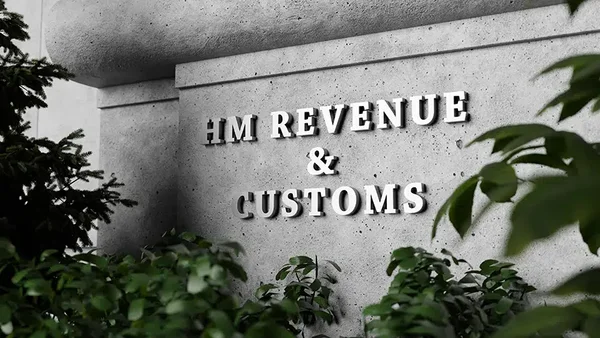Defining Shareholders: The Basics Explained

In the world of business, a shareholder is an individual or institution that owns at least one share of a company's stock. This ownership entitles the shareholder to a portion of the company's profits, typically paid out in the form of dividends. Shareholders, also known as stockholders, have various rights within the company, which may include voting rights on significant corporate matters such as the election of board members and approval of major corporate policies.
The role of a shareholder is pivotal as they provide the capital needed for the business to grow and expand. Their investment, whether small or large, directly impacts the company's financial health and expansion potential. Without shareholders, companies would struggle to raise the necessary funds for development, strategic initiatives, and competitive positioning.
Understanding what a shareholder is and their intrinsic role within a business framework helps in comprehending the broader picture of corporate finance and governance. This knowledge is invaluable for anyone involved in or considering entering the business landscape, whether as an entrepreneur, investor, or employee.
Shareholders' Rights and Responsibilities
Shareholders have a vital role in a company, with specific rights and responsibilities. They are entitled to receive dividends, which are portions of the company's profits distributed to shareholders. Shareholders also have the right to vote on significant corporate decisions, such as electing board members and approving major corporate policies. Additionally, they have access to certain financial information, enabling them to make informed decisions about their investments. However, shareholders also face risks, including the potential loss of their investments if the company performs poorly. Their financial stake ties their fortunes to the company's success or failure, emphasising the importance of their involvement.


Role in Corporate Governance
Shareholders play a crucial role in corporate governance by using their voting rights to influence the company's management and strategic direction. This influence is exercised through voting on key issues, such as the election of board members, approval of major corporate policies, and decisions on mergers and acquisitions. Their involvement helps align the interests of the management with those of the shareholders, ultimately contributing to the company's long-term success and stability. This active engagement fosters trust and confidence in the company's governance.

In the UK, retail shareholders make up nearly 11.5% of the stock market. This significant presence illustrates the substantial influence individual investors have on the market.Statistical Impact of Shareholders

It has been noted that 70% of shareholder votes directly impact executive pay packages. This statistic highlights the significant power shareholders have in shaping company policies and executive compensation.Corporate Voting Influence

Importance in Business Success
The importance of shareholders in business cannot be overstated. They provide the necessary capital for companies to invest in innovation, expand operations, and compete in the market. This financial backing is essential for a company’s long-term success and sustainability. Shareholders’ investments are not only crucial for starting a business but also for its ongoing development and success. Their ongoing support through buying more shares and participating in shareholder meetings helps companies steer in the right direction, ensuring they remain competitive and financially stable.
Moreover, shareholders' vested interest in the company's success ensures a continuous focus on profitability and efficiency. By holding management accountable and pushing for better performance, shareholders help maintain the company's alignment with its strategic goals. This alignment ensures that the company can achieve its objectives while delivering returns to its investors.
Types of Shareholders
There are various types of shareholders, including common and preferred shareholders. Common shareholders typically have voting rights and receive dividends, whereas preferred shareholders have a higher claim on assets and earnings but usually do not have voting rights. This differentiation affects how each type of shareholder interacts with and influences the business.
Another distinction is between individual and institutional shareholders. Individual shareholders are private investors owning shares for personal gain, while institutional shareholders include entities like pension funds, mutual funds, and insurance companies. These institutions often hold large blocks of shares and can exert significant influence on corporate policies and decisions.

Tips and Trends in Shareholding

One trend in shareholding is the increasing influence of institutional investors. With their large holdings, they are poised to play a more critical role in corporate governance and decision-making.The Rise of Institutional Investor Influence

Another trend is the rise of activist shareholders who push for significant changes within companies. These investors seek to improve company performance by advocating for new strategies or structural changes.The Rise of Activist Shareholders

Finally, the growing popularity of ESG (Environmental, Social, and Governance) investing means shareholders will increasingly focus on these criteria when making investment decisions. Companies will need to align with these values to attract and retain shareholders.The Impact of ESG Investing

Fun Fact About Shareholders
Did you know that there are more than 14 million individual shareholders in the UK? This widespread participation highlights the thriving culture of investment in the country and underscores the importance of shareholders in boosting the economy.
Navigating Shareholder Relationships

Successfully navigating relationships with shareholders is essential for any company. Regular communication and transparency are key to maintaining trust. By keeping shareholders informed about company performance and strategic decisions, companies can foster a positive relationship with their investors.
Another crucial aspect is understanding shareholder expectations. Companies must be aligned with their shareholders' goals and work towards creating value for them. This alignment can be achieved through regular feedback, surveys, and active engagement during shareholder meetings.

Effective communication strategies involve regular updates on financial performance, strategic initiatives, and market opportunities. Utilising digital platforms for real-time updates can enhance this communication and keep shareholders engaged. Transparent communication also builds trust and can help mitigate any potential conflicts. Clear and honest dialogues about the company’s challenges and opportunities can foster a stronger relationship between the company and its shareholders.Communication Strategies

Creating value for shareholders goes beyond financial returns. Companies need to focus on sustainable practices and align with shareholders’ values, such as ESG criteria. This holistic approach not only enhances shareholder satisfaction but also contributes to the company's long-term success. By strategically aligning company goals with shareholder interests, businesses can create significant value for their investors. This, in turn, fosters loyalty, encourages further investments, and ensures the company's sustained growth.Creating Value
Summary
Understanding the role of shareholders is fundamental to grasping the broader business and financial picture. Shareholders are essential for providing capital, influencing corporate governance, and ensuring that companies remain accountable and strategically focused. There are different types of shareholders, each playing a unique role in a company's success. Future trends indicate an increasing influence of institutional investors and a growing focus on ESG criteria. Effective communication and creating value beyond financial returns are keys to navigating shareholder relationships successfully. By keeping shareholders informed and aligned with the company's vision, businesses can secure the essential support needed for ongoing growth and innovation.
Frequently Asked Questions
What are the basic rights of a shareholder?
Shareholders have the right to vote on important corporate matters, receive dividends, inspect company records, and sue for wrongful acts. They also have a claim on a portion of a company's assets in case of liquidation.
How do shareholders influence corporate governance?
Shareholders influence corporate governance through their voting rights, which allow them to elect board members and approve major corporate policies. Their votes can impact executive remuneration and strategic decisions, thus holding management accountable.
What is the difference between common and preferred shareholders?
Common shareholders typically have voting rights and receive dividends, while preferred shareholders have a higher claim on assets and earnings but usually do not have voting rights. Preferred shareholders often receive fixed dividends before any are paid to common shareholders.
What are institutional shareholders?
Institutional shareholders include entities like pension funds, mutual funds, and insurance companies that invest large sums of money into companies. They often hold significant amounts of shares and can have a considerable influence on corporate policies and decisions.
How can companies improve relationships with shareholders?
Companies can improve relationships with shareholders through regular, transparent communication, understanding and aligning with shareholder expectations, and focusing on sustainable practices that create long-term value. Engaging shareholders in meaningful dialogues and being responsive to their concerns also helps in building trust and loyalty.










